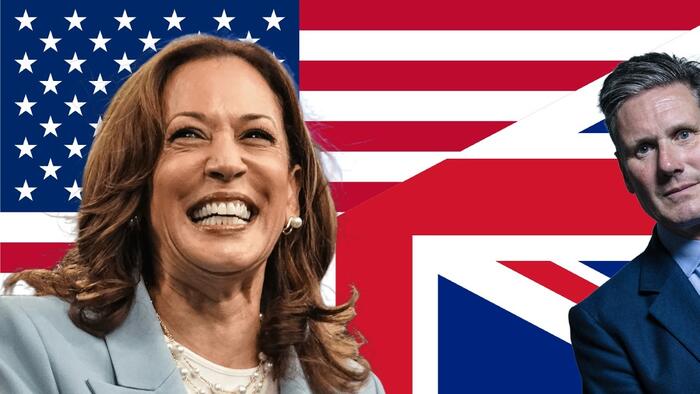Sofia Patel, the Head of Operations for the British Labour Party, recently stirred controversy by announcing a campaign initiative to send around 100 party members to swing states in the United States for the upcoming elections. This initiative was aimed at supporting Kamala Harris, the Vice President running for re-election. Patel’s LinkedIn post highlighted the offer of free accommodation for those willing to join, which drew significant backlash across social media platforms. Critics were quick to charge her and her party with foreign electoral interference during U.S. elections, reigniting discussions about the appropriateness of foreign nationals trying to influence domestic politics in another country.
Responses to Patel’s initiative were filled with skepticism and outrage. Many commentators underscored the absurdity of British political operatives trying to engage with American voters, arguing that residents of key swing states such as Virginia, North Carolina, and Pennsylvania would likely not be receptive to messages from foreign elites with “leftist” views. Concerns regarding the legality of Patel’s plan also emerged, with several voices, including prominent figures like Elon Musk, pointing out that such efforts could violate U.S. laws against foreign interference in domestic elections.
Critics of this venture included individuals who pointed to the historical context of foreign incursions, questioning why British officials felt entitled to meddle in U.S. affairs when America had formerly fought for independence from British control. Many Americans expressed their disdain for the idea of British nationals dictating electoral preferences or campaigning for a candidate. Some social media users humorously suggested a need for British political operatives to focus on their own national crises instead of transgressing into American politics.
Undoubtedly, the Labour Party’s decision to send advocates to the U.S. has been perceived as a glaring political misstep. Given the charged political climate and pressing domestic issues in the U.K., many felt this focus on American politics could serve as a significant distraction from addressing pressing problems at home, including the state of the National Health Service and immigration. Such critiques suggest a broader tendency among foreign entities to underestimate the complexities of local electoral dynamics in the U.S., especially regarding how their involvement might be received.
The backlash also illustrated a broader theme in contemporary politics: the growing frustration with perceived elitism and the increasing detachment between politicians and the people they serve. The act of foreign intervention in elections has become a particularly sensitive issue, often viewed as an affront to national sovereignty. The Labour Party’s engagement in this manner has left many observers wondering about the implications for both the U.K. and U.S. political landscapes, especially as both countries grapple with significant socio-political tensions.
In conclusion, Patel’s initiative highlights the contentious nature of foreign political involvement and raises critical questions about the responsibilities that political parties hold both domestically and internationally. As the Labour Party navigates these turbulent waters, the mixed reactions to their campaign will likely inform future strategies and focus areas, both in Britain and abroad. Amidst this controversy, it remains to be seen whether this bold move will fortify or diminish the Harris campaign, as well as how it will influence the perception of the Labour Party’s own credibility back home.

